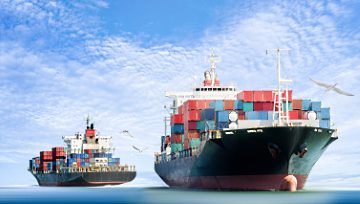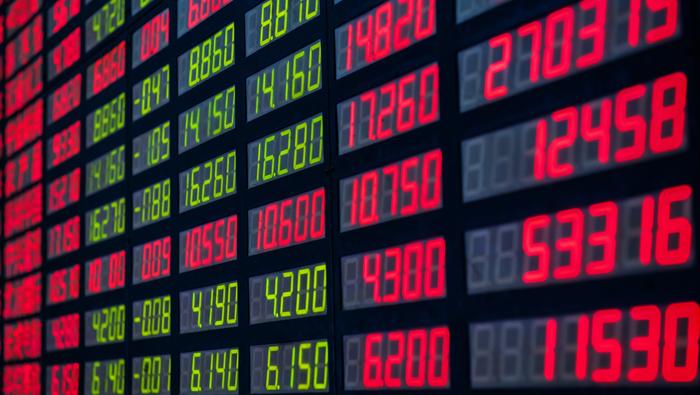Global Growth Talking Points:
- The World Bank highlighted trade tensions and shrinking international investment as risks to global growth
- The end of accommodative monetary policy in advanced economies was also found to be a key risk to growth
- World Bank officials forecast advanced economies to grow at 2% in 2019 but drop to 1.5% by 2021
The World Bank issued their bi-annual Global Economic Prospects report late Tuesday to warn of a slowing global economy. Titled “Storm Clouds are Brewing for the Global Economy,” the report highlighted some of the growth risks that various nations face in the year ahead. Shrinking international trade, trade tensions, pressured emerging markets and the end of accommodative monetary policy in developed nations were some of the headline concerns.
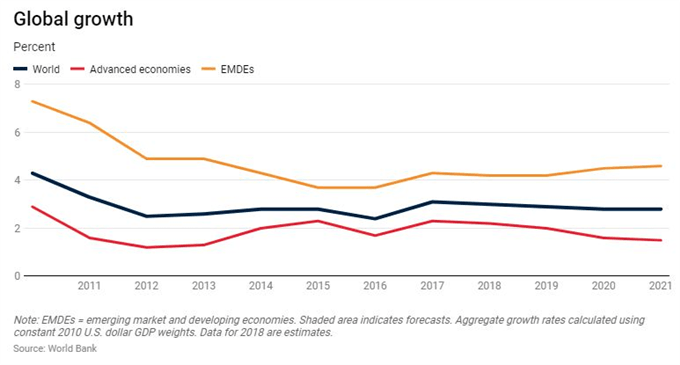
World Bank CEO Kristalina Georgieva noted the shifting winds from 2018 saying “At the beginning of 2018 the global economy was firing on all cylinders, but it lost speed during the year and the ride could get even bumpier in the year ahead. As economic and financial headwinds intensify for emerging and developing countries, the world’s progress in reducing extreme poverty could be jeopardized. To keep the momentum, countries need to invest in people, foster inclusive growth, and build resilient societies." While trade tensions may be on the path to normalization, so too are the central banks of the advanced economies. This will only exacerbate the pressure on emerging economies.
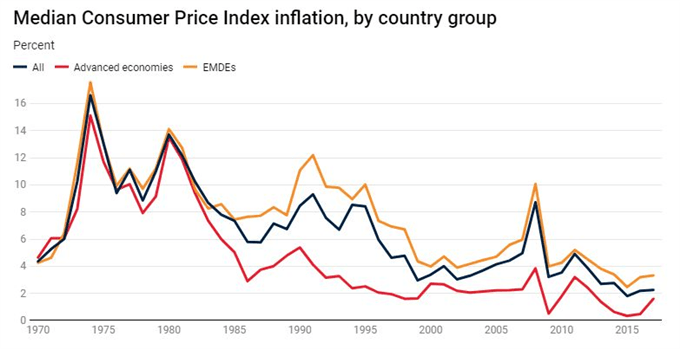
End of an (Accommodative) Era
As the world’s advanced economies meander down the path to normalization, the World Bank cautioned the impact from a new era of monetary policy. While officials believe low interest rates have been a major factor in the last decade of growth, they also warned inflation may now return to the fray.
Tomorrow’s Fed minutes and Bank of Canada rate decision have the potential to temper immediate rate hike expectations as recent stock market volatility and weakened economic data look to pump the brakes on previously hawkish central banks.
Still, rate increases have already begun to weigh on emerging markets. Many emerging economies have substantial swathes of their debt denominated in US Dollars and now face mounting interest payments, just as trade wars and geopolitical tensions muddy international cooperation and investment. World Bank officials see these debt repayments becoming more difficult to settle as economic output slows.
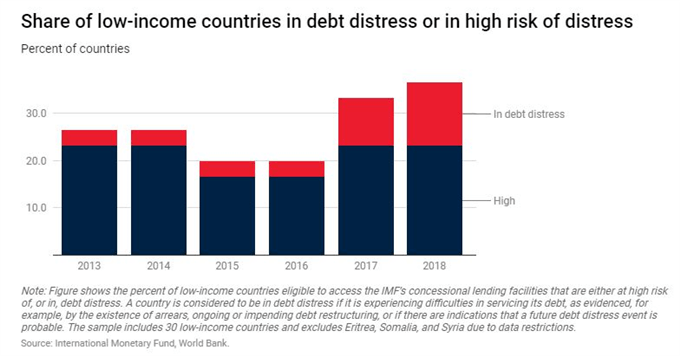
The report echoes warnings from other macroeconomic facing organizations like the International Monetary Fund, the Federal Reserve and the World Trade Organization. Tomorrow’s Federal Reserve minutes and Bank of Canada rate decision will be key events to watch. Similarly, ongoing trade talks between the United States and China could remove one headline risk should the parties agree to a deal.
--Written by Peter Hanks, Junior Analyst for DailyFX.com
Contact and follow Peter on Twitter @PeterHanksFX
Read more: Will the Stock Market Crash in 2019?
DailyFX forecasts on a variety of currencies such as the US Dollar or the Euro are available from the DailyFX Trading Guides page. If you’re looking to improve your trading approach, check out Traits of Successful Traders. And if you’re looking for an introductory primer to the Forex market, check out our New to FX Guide.


